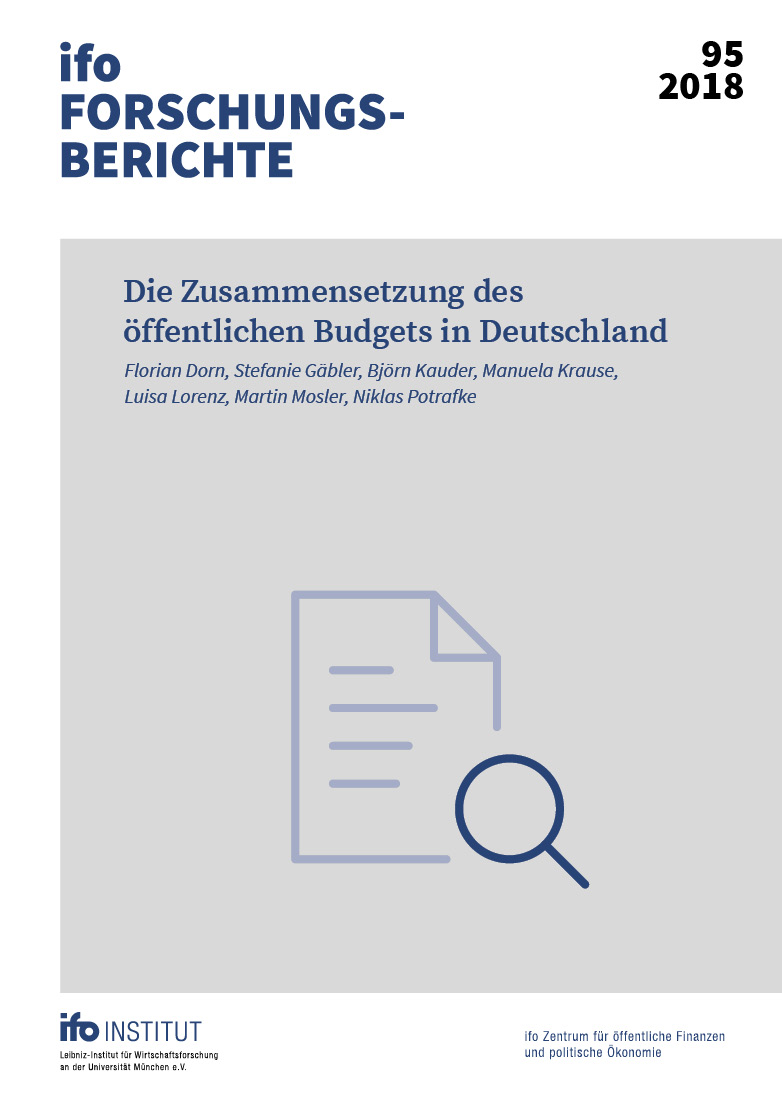The budget composition of the government in Germany
ifo Institut, München, 2018
ifo Forschungsberichte / 95

The budget composition is an important indicator for the politics of governments. Decisions of the government on the allocation of money for different tasks are discretionary, but are also influenced by economic and social factors. We examined the budget composition in Germany at the federal, state and municipal level over time and compare it with the development in other OECD countries. The results show that Germany had high expenditures for social tasks, especially since the middle of the 2000s. With regard to investments, Germany’s contributions were really low compared to other OECD countries and high developed European countries. The same holds true for education expenditures, although those expenditures increased at the federal and state level. In terms of expenditures for defence and development, Germany did not fulfil the internationally agreed targets – but this holds also true for many other countries. Remarkably, the public spending ratio decreased on the federal, state and municipal level in Germany in the last years.